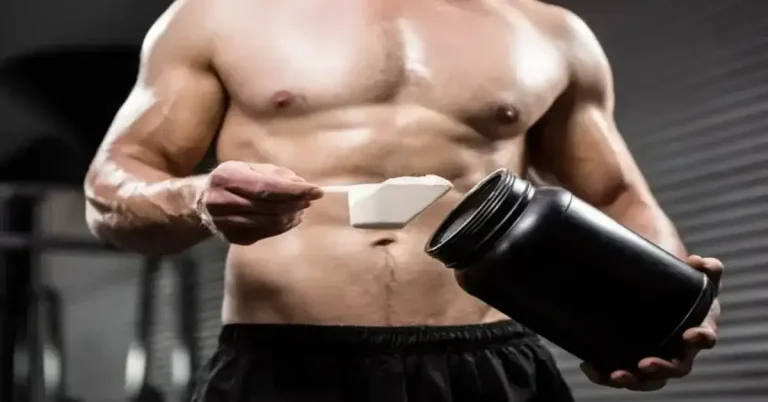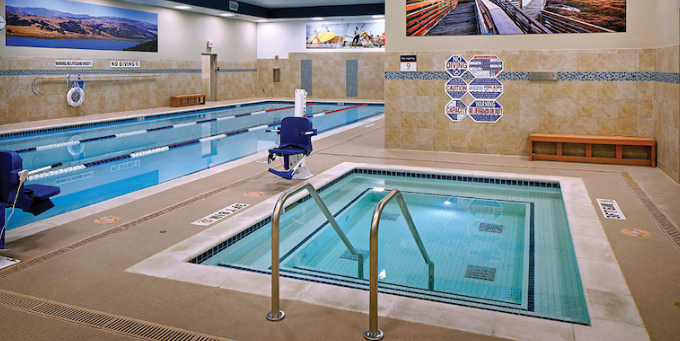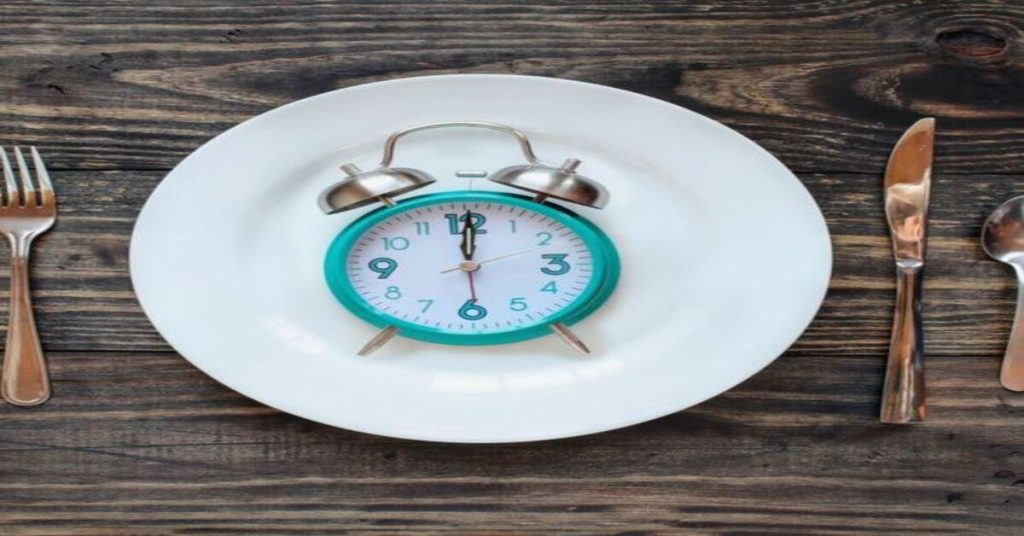Yes, creatine can cause weight gain, but it is often not fat-based. Highscales after creatine use are usually caused by water retention. Increasing lean muscle mass can also result in weight gain. Creatine is a popular complement in the fitness industry because it improves muscular growth and performance. However, creatine water retention and creatine weight gain are frequently questioned.
Creatine Weight Gain: Key Takeaways
- Creatine weight gain is mainly caused by muscle water retention. This weight gain is limited to the muscles and is not spread throughout the body.
- Muscle mass and cellular hydration are often responsible for creatine weight gain.
- Creatine can increase muscle mass, improve performance, and strengthen workouts, so gaining weight is not always terrible. Exercising regularly, maintaining a healthy diet, and modifying macronutrients can help reduce any unwilling weight gain.
Table of Contents
What Is Creatine?
Arginine and glycine are amino acids that your body naturally converts into creatine. Because of its capacity to change cellular functions, creatine is famous in fitness as a supplement that increases strength, muscle mass, and recovery. Some people are concerned that creatine will cause them to gain weight, but several health benefits exist.
The brain, kidneys, and liver store about 5% of the body’s creatine, while the muscles store 95%. Without enough creatine, the body cannot work correctly, and muscle mass may decrease. It is true that your body naturally produces creatine, but its reserves vary according to your lifestyle and physical characteristics. You are not experiencing weight changes because of this fluctuation. Creatine supplements can lead to weight gain if taken regularly.
Types of Creatine Supplements
There are primary types of creatine supplements:
- Creatine monohydrate: Creatine monohydrate is a common type of creatine. It is considered the gold standard.
- Creatine Ethyl Ester: It is claimed that creatine ethyl ester is more soluble than monohydrate.
- Creatine Hydrochloride: Creatine Hydrochloride (HCL) is another name for creatine. It is more soluble than monohydrate, but there is conflicting evidence.
- Buffered Creatine: Contains extra nutrients for gastrointestinal comfort.
- Micronized Creatine Monohydrate: Micronized creatine monohydrate is finely ground to improve absorption.
- Liquid Creatine: You can use liquid creatine instead of powders or pills. Different products absorb at different rates.
What does creatine do?
Creatine is significant in restoring energy stores in the body. Muscles convert ATP into creatine phosphate to produce ATP. Muscle strength and growth are increased as a result.
Specifically:
- Muscles renew ATP by absorbing creatine and converting it into phosphocreatine, which adds a phosphate group to ADP.
- A faster rate of ATP renewal during exercise allows for more repetitions and a heavier workout load.
- Improving work capacity and weight training can increase muscular growth over time.
- It may also result in a brief increase in muscle size or a “pump” during exercise as it stimulates the muscles to retain water.
Why Do People Take Creatine?
There are many reasons to take creatine. Most people take creatine to increase muscle mass, strength, endurance, or sports performance. Taking creatine supplements can improve muscle strength, fat-free body mass, and exercise performance and ability.
Furthermore, creatine can help muscles recover from exercise, especially for vegans and vegetarians whose bodies store less creatine. Bodybuilders can use creatine during the cutting phase to improve resistance training results.
Does Creatine Make You Gain Weight?
There are several myths about creatine weight gain. Some believe creatine makes you gain weight, but that’s only partially true. A creatine supplement can cause an increase in body weight even when it is not caused by increased fat mass.
The majority of weight gain, however, is due to water retention since creatine draws water into your muscle cells, making them look bigger and fatter. After you stop taking creatine, your water weight will drop, so this is only a temporary effect.
Does Creatine Cause You to Gain Muscle?
Creatine supplements can help you acquire muscle mass, but they do not grow muscle independently. You will not gain muscles if you do not exercise and eat healthily. Muscles can store more creatine phosphate when given creatine monohydrate. Creatine monohydrates make you gain weight.
When your muscles have more stored phosphocreatine, you can produce more energy during high-intensity sports. The results are excellent weight lifting, repetitions, and power. This promotes muscle growth over time. Also, creatine may help with recovery and reduce fatigue after exercise.
Does Creatine Make You Gain Unwanted Weight?
Generally, unwanted weight gain results in fat collection. You will not get excess fat or fatty tissue when you take creatine supplements. Creatine users gain weight primarily because of water retention. Eating more calories than your body needs to function can lead to muscle and fat gain, even if creatine does not directly lead to weight gain. Exercise and a healthy diet are necessary to reduce the risk of unintended fat gain when using creatine.
Is Creatine Weight Gain Permanent?
Creatine can temporarily and reversibly increase water weight. When you stop using creatine, water weight usually drops. Water retention can cause people to gain different amounts of weight. The effect may be softer for some but more significant for others. However, if you continue to exercise and eat well, you can maintain your new weight for a long time.
Does creatine make you fatter?
In short, creatine does not make you fat. The ultimate cause of creatine weight gain is water retention rather than increased body fat. A creatine pill can support the growth of lean muscle mass, which boosts your metabolism and helps you burn calories more effectively. Using creatine requires a healthy diet and exercise routine. Even without supplements, weight gain is possible.
Why does creatine make you gain weight?
The main ways that creatine donates to weight gain are by encouraging muscle growth and boosting water retention in muscle cells. When you take creatine, your muscles seem heavier and fuller because it attracts water into them. Furthermore, creatine improves performance and strength, enabling more severe training and greater muscular mass. Water and muscle, not fat, are the leading causes of this weight gain.
Creatine bloating
Creatine and bloating are often linked, but water retention is usually temporary. Bloating may occur when you first start taking creatine, especially when loading. This is because creatine enhances muscle mass and water content.
Does creatine make you puffy?
Each individual may have a different answer. Increased water retention may make some people feel bloated or puffy when taking creatine for the first time. However, if you drink plenty of water and divide your creatine dose throughout the day, you can minimize creatine bloating.
Does creatine help with fat loss?
Creatine improves muscle strength and function but does not directly affect fat loss. However, creatine can indirectly help you lose weight by increasing the power of your workouts and maintaining muscle mass during calorie-restricted diets. Keeping your muscles lean will boost your metabolism and make you appear more fit. Creatine is an effective tool in your health toolbox, even though it is not a gift of weight loss support.
Does Creatine Make You Gain Belly Fat?
There is no direct link between creatine and belly fat. Its primary effects are performance boosting and muscle support.
Can creatine make you gain weight?
Creatine supplements do have some possible adverse side effects aside from their health benefits. Creatine supplements at high doses can damage your heart, kidneys, and liver. Creatine should not be taken if you have ever had any health problems with these organs. Creatine has also been linked to weight gain, so you might be worried that it will increase your body fat percentage.
- Water weight: Some people report fast weight gain after taking oral creatine. However, most people experience weight gain, bloating, or “puffiness” due to water weight growth after starting creatine. Your muscles retain more water when you take a creatine supplement because it increases intracellular and extracellular water levels.
- Muscle mass: Some females gain weight after using creatine tablets due to muscle gain. Fat is considered the same as muscle, but muscle mass weighs more. Although people with a lot of body fat and muscle mass may weigh the same, a kilogram of muscle will appear smaller than a kilogram of fat. Increases in lean muscle mass do not appear to be fat gain but rather change your body composition.
- Increased Caloric Intake: Consuming creatine may increase your hunger as your workout performance and recovery improve. Excess calories can cause muscle and fat weight gain. Even though creatine does not directly cause fat accumulation, consuming too many calories can lead to obesity. With a good diet and regular exercise, creatine is unlikely to cause weight gain.
Who Should Not Take Creatine?
People who should not take creatine supplements include:
- Those with high blood pressure, liver disease, or kidney disease.
- Children under 18 years of age.
- Pregnant or nursing women.
- The use of creatine may interfere with some drugs that affect kidney or liver function.
- People over 60 may not benefit as much from creatine in enhancing muscle growth or strength.
- There is no evidence that creatine slows the progression of ALS or improves survival in ALS patients.
What to Do If You Gain Unwanted Weight After Taking Creatine?
When taking creatine supplements, you should take precautions to avoid water retention.
- Reduce sodium intake: To avoid gaining too much water weight, watch how much sodium you consume each day. The easiest way to keep it down is to prevent high-processed foods.
- Reduce carb intake: As with sodium, more carbs also mean more water in the body. You need carbs for energy, but keep your carb intake in check.
- Drink more water: Drink plenty of fluids throughout the day because more fluids make you urinate more, which causes you to lose water more rapidly.
- Adjust macros: Take creatine at a lower dose if you gain weight unintentionally. Carbohydrates are necessary for energy, but they also cause you to need more water. Most people can comfortably consume 225–325 grams of carbohydrates per day.
- Exercise Regularly: Maintaining a regular workout schedule is the most effective way to lose excess water. Sweating helps you lose water retention and achieve your fitness goals. Low-intensity steady-state cardio (LISS) and high-intensity interval training (HIIT) increase perspiration production, removing water. Creatine supplements can cause weight gain if water retention is not reduced.
- Sauna: A 20-minute sauna session can help you lose 2 to 5 pounds. It can also help reduce weight gain from water retention if you take creatine supplements. Sauna and creatine supplements can make the body desire water.
How Much Weight Does Creatine Make You Gain?
Combining creatine with resistance training increases muscle mass by 2-4 pounds monthly. Nutrition and exercise improve results over time. Creatine supplements increase muscular strength and mass when combined with resistance exercise.
The average weight gain over the first week is 1.5 to 3.5 pounds, likely due to water retention in the body and muscles. Most lifters gain 2-4 pounds of muscle mass after four to twelve weeks of training and taking 3 grams of creatine daily.
What Is the Best Diet for Weight Gain With Creatine?
Creatine increases muscle growth when consumed with calories, protein, and carbohydrates. For muscle growth, you must consume more calories than you expend. Protein can help boost muscle protein synthesis by consuming 1–1.5 grams per pound of body weight daily. Fish, meat, eggs, dairy products, and plant-based substitutes are good protein sources.
For energetic exercise, carbohydrates should account for 50–60% of calories. Some sources of carbohydrates include rice, potatoes, oats, fruit, and vegetables. The effects of creatine alone do not lead directly to fat accumulation, but a diet high in calories can increase body weight in a non-muscular way.







